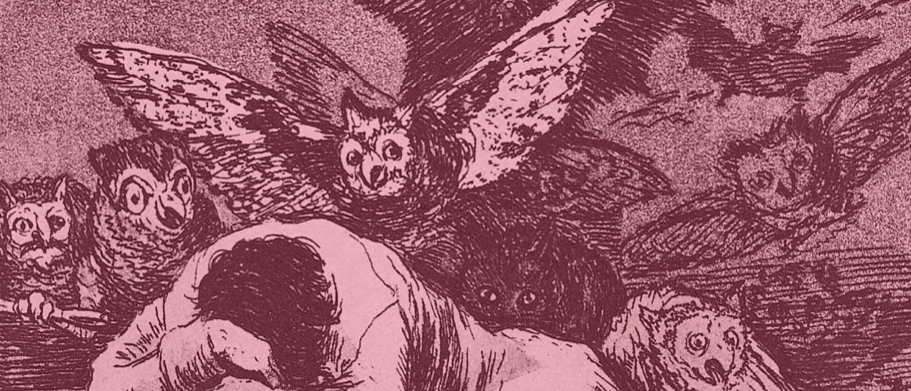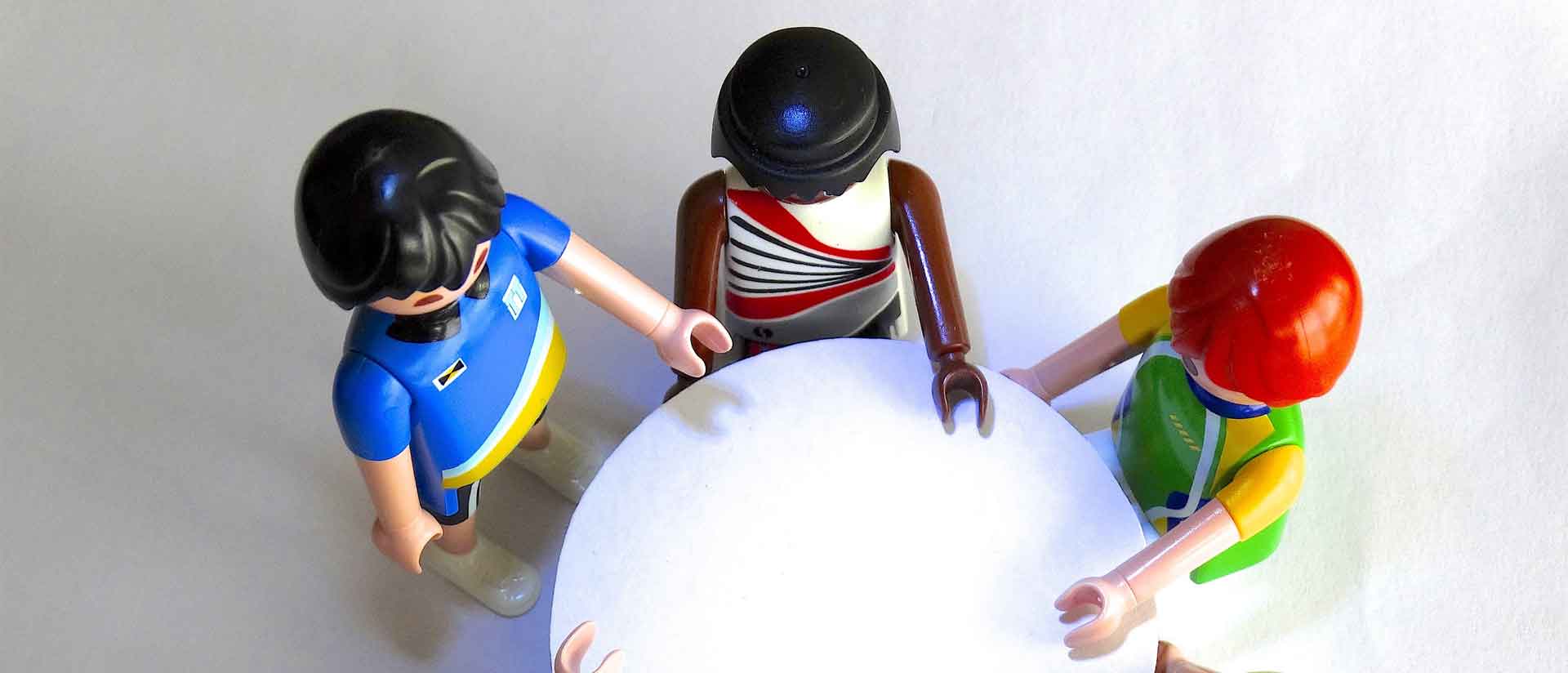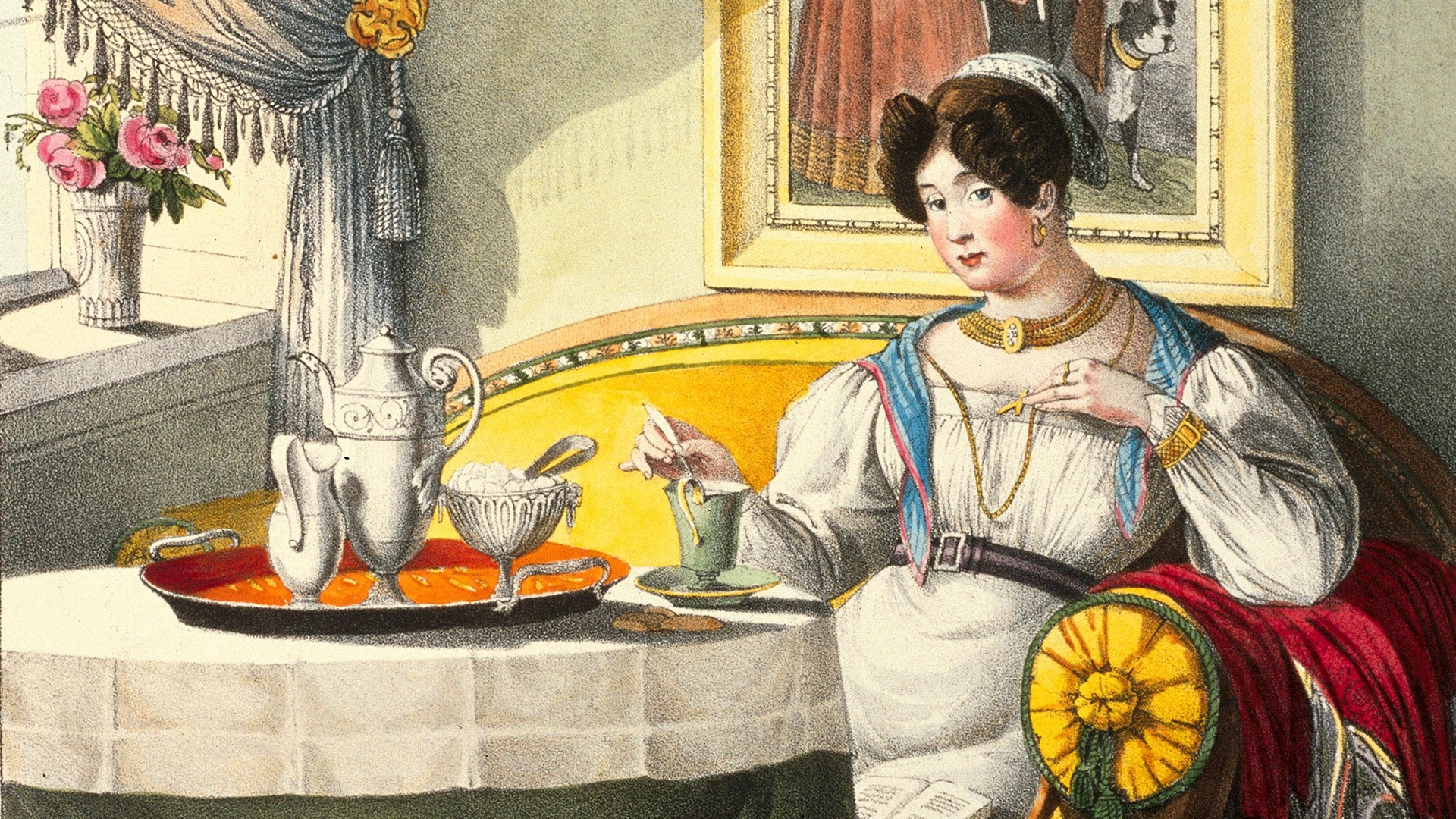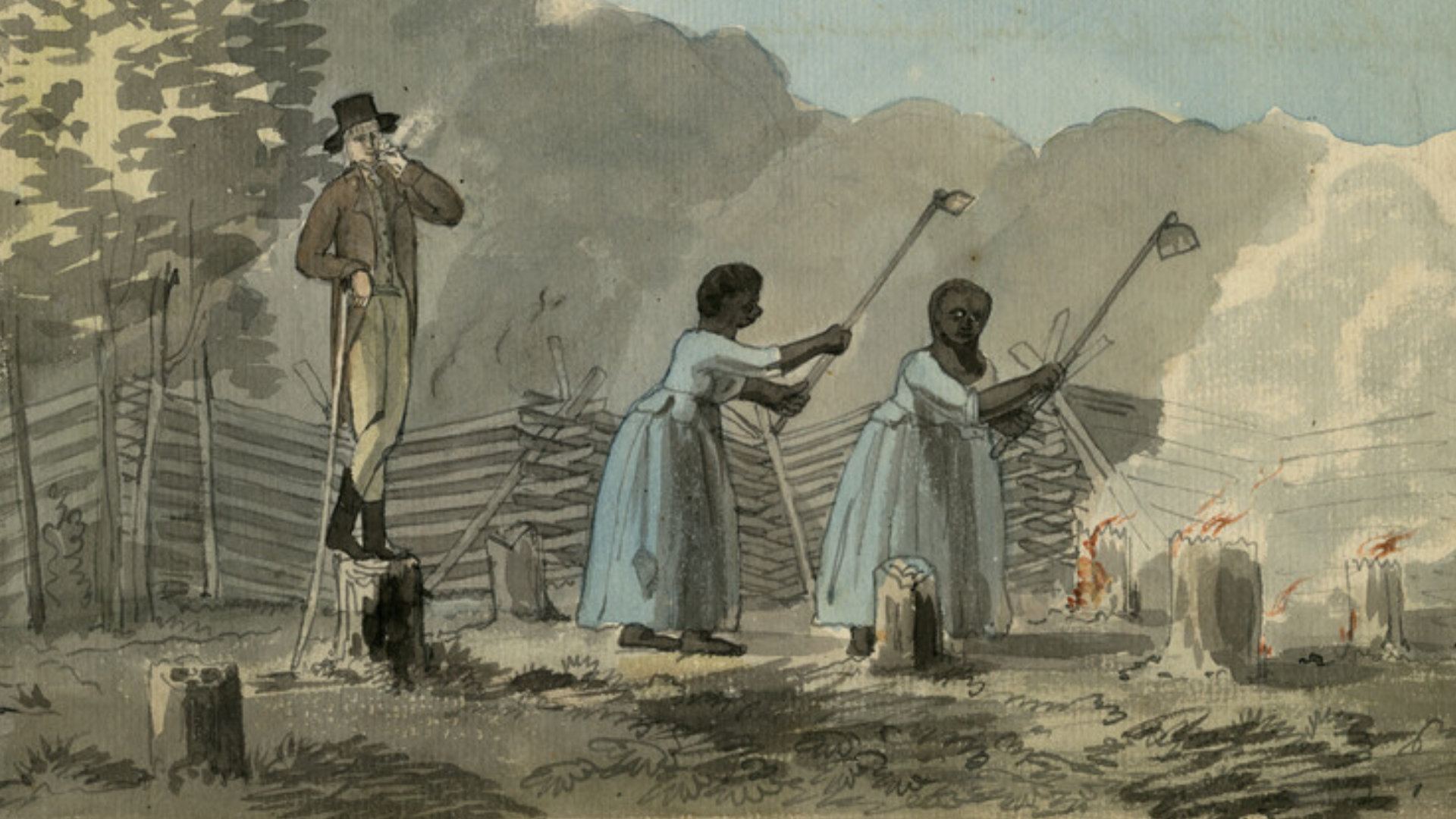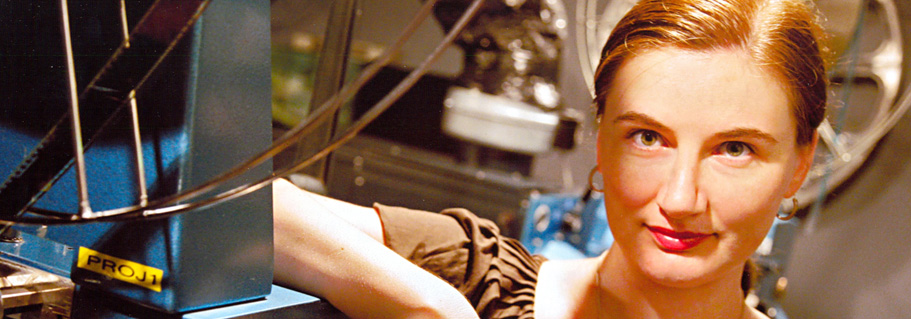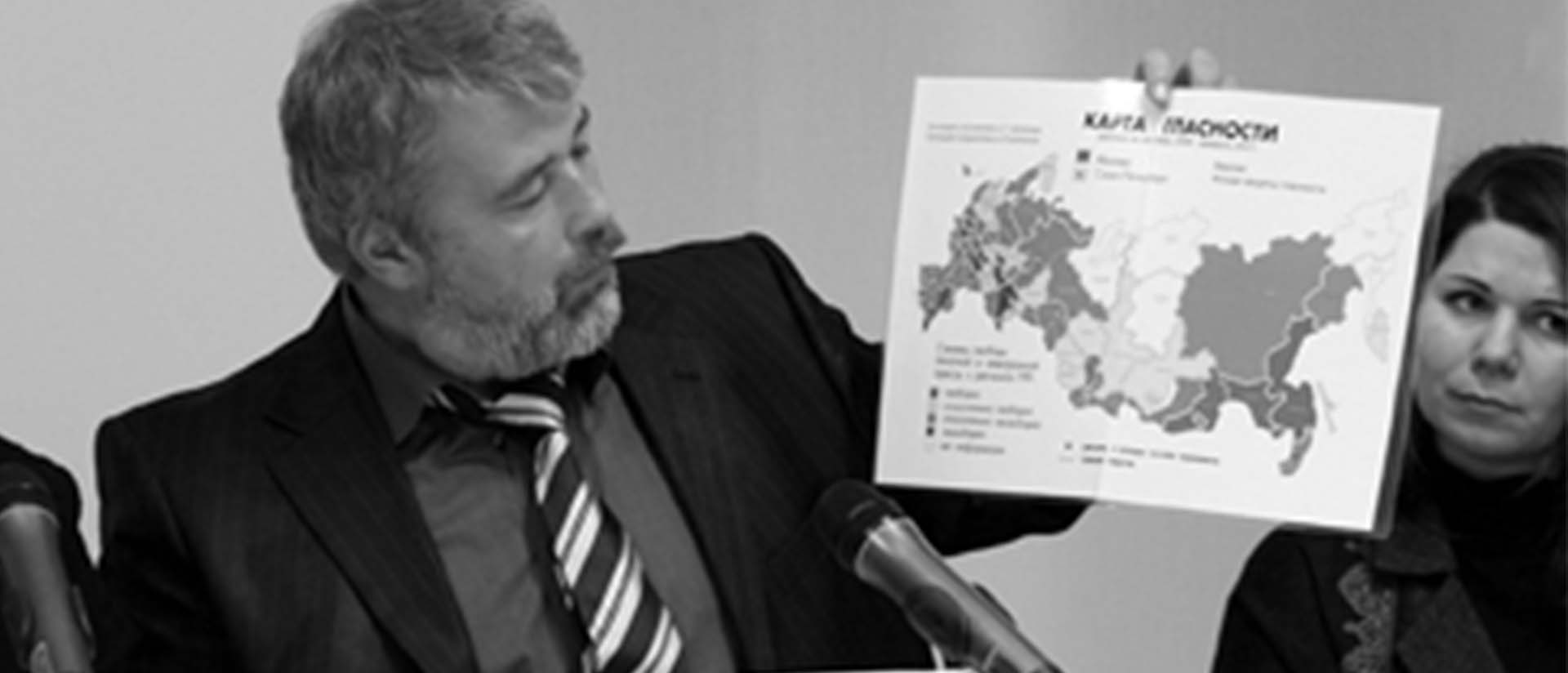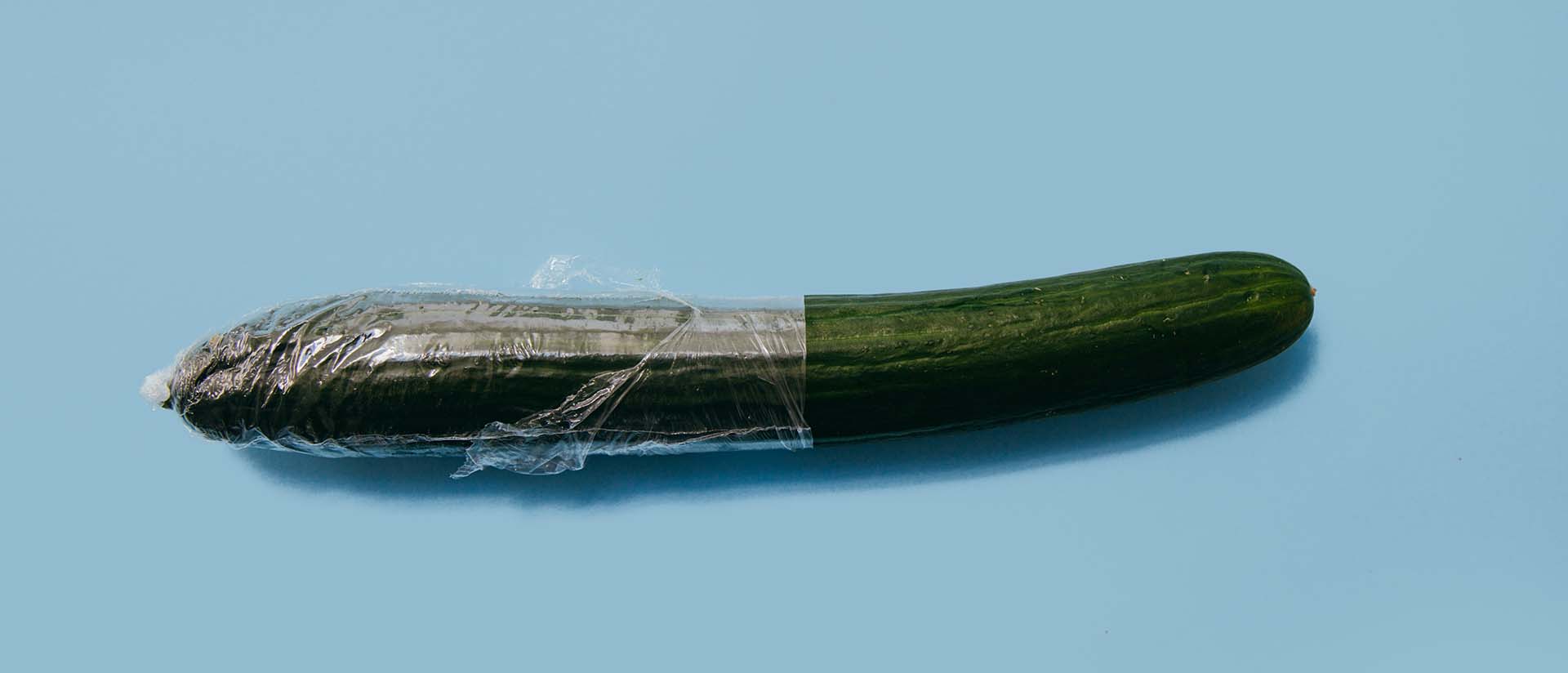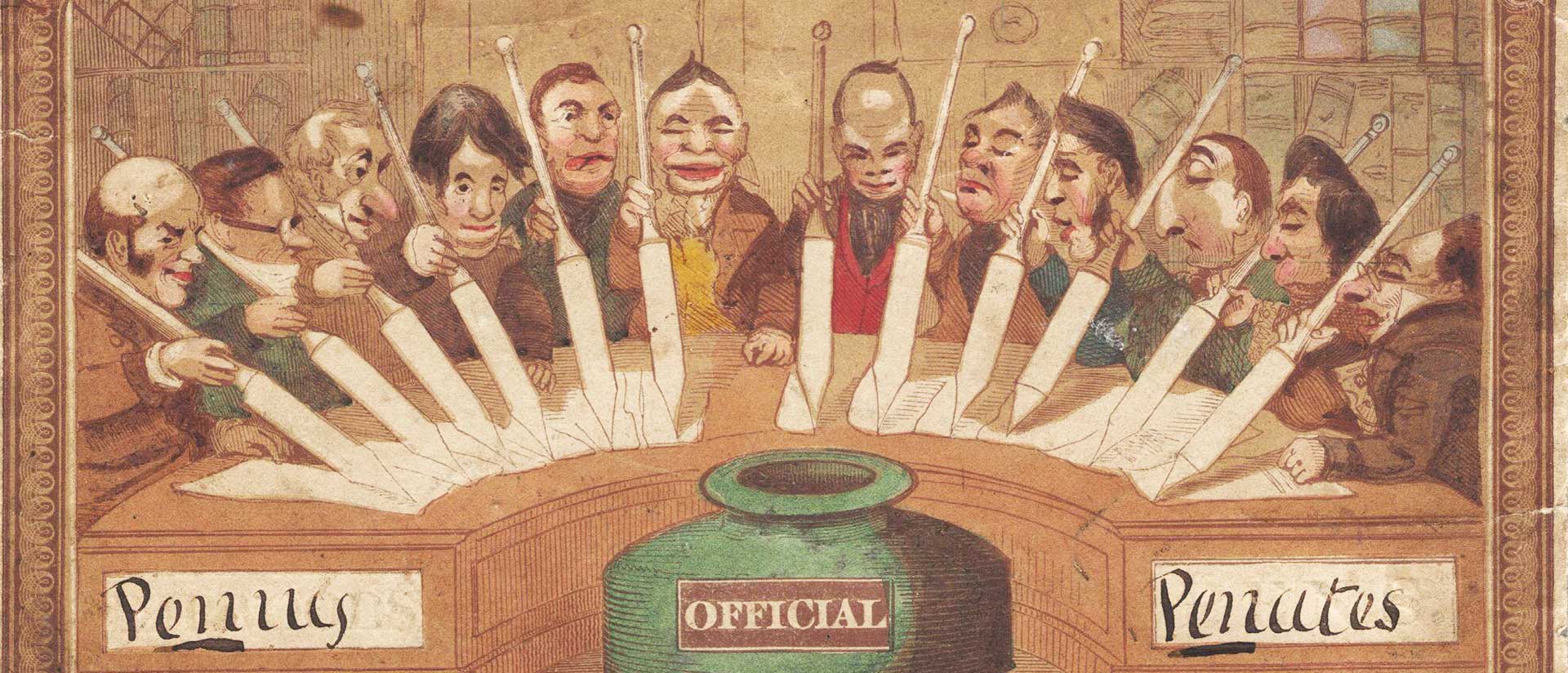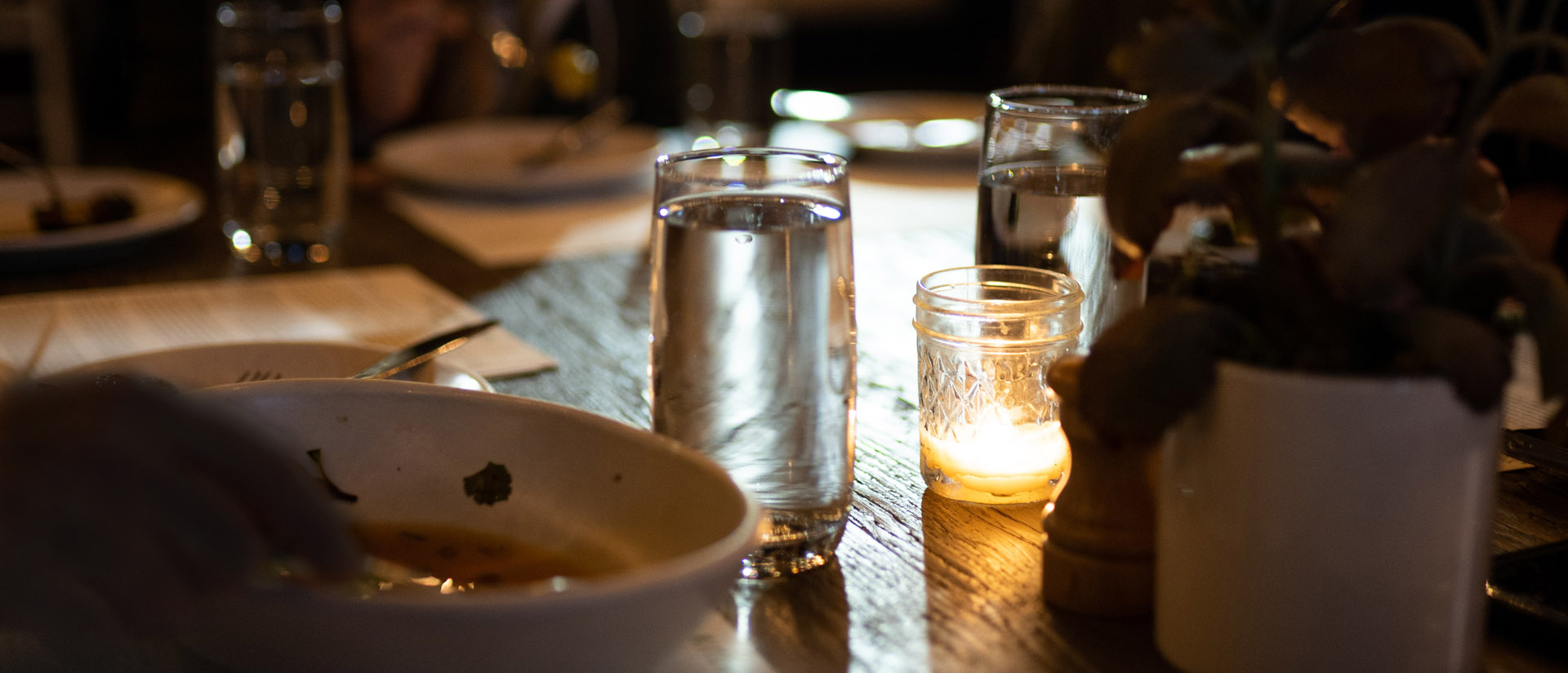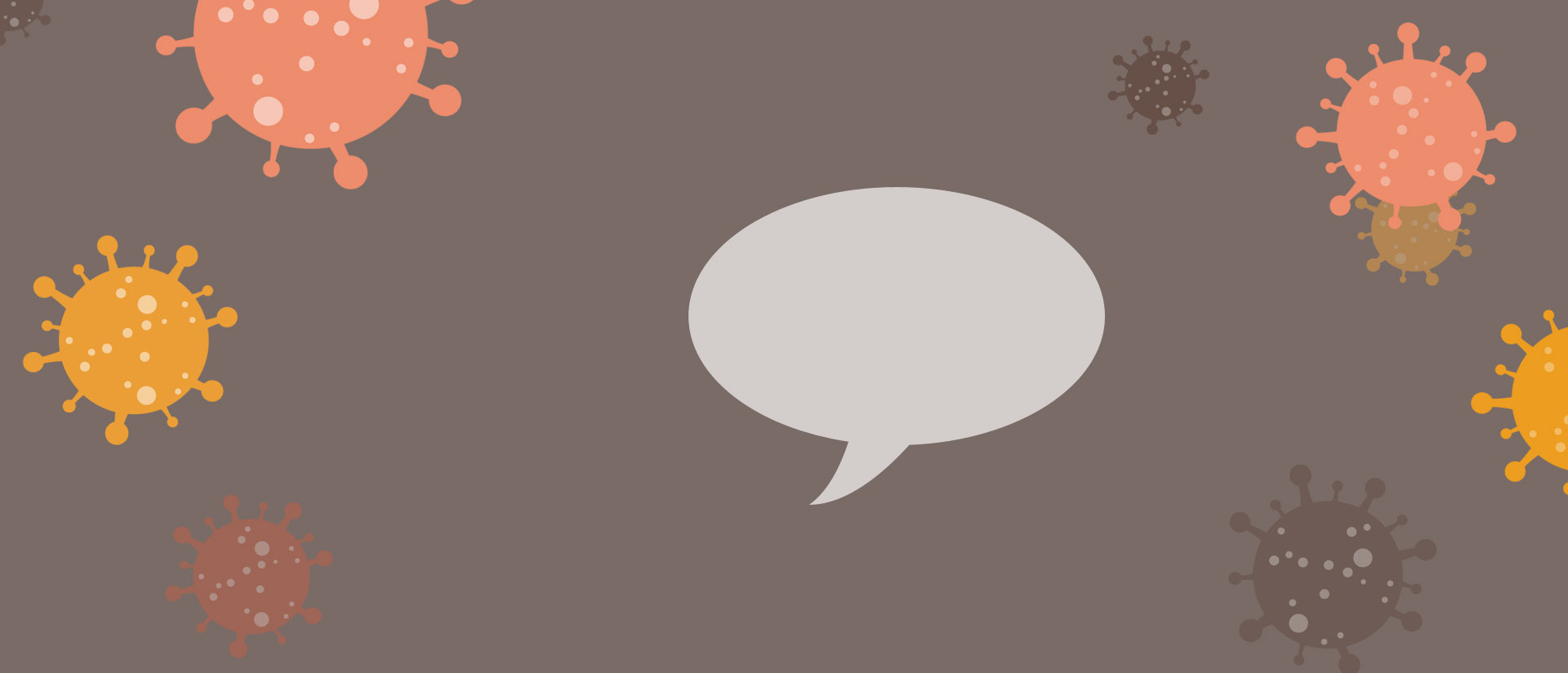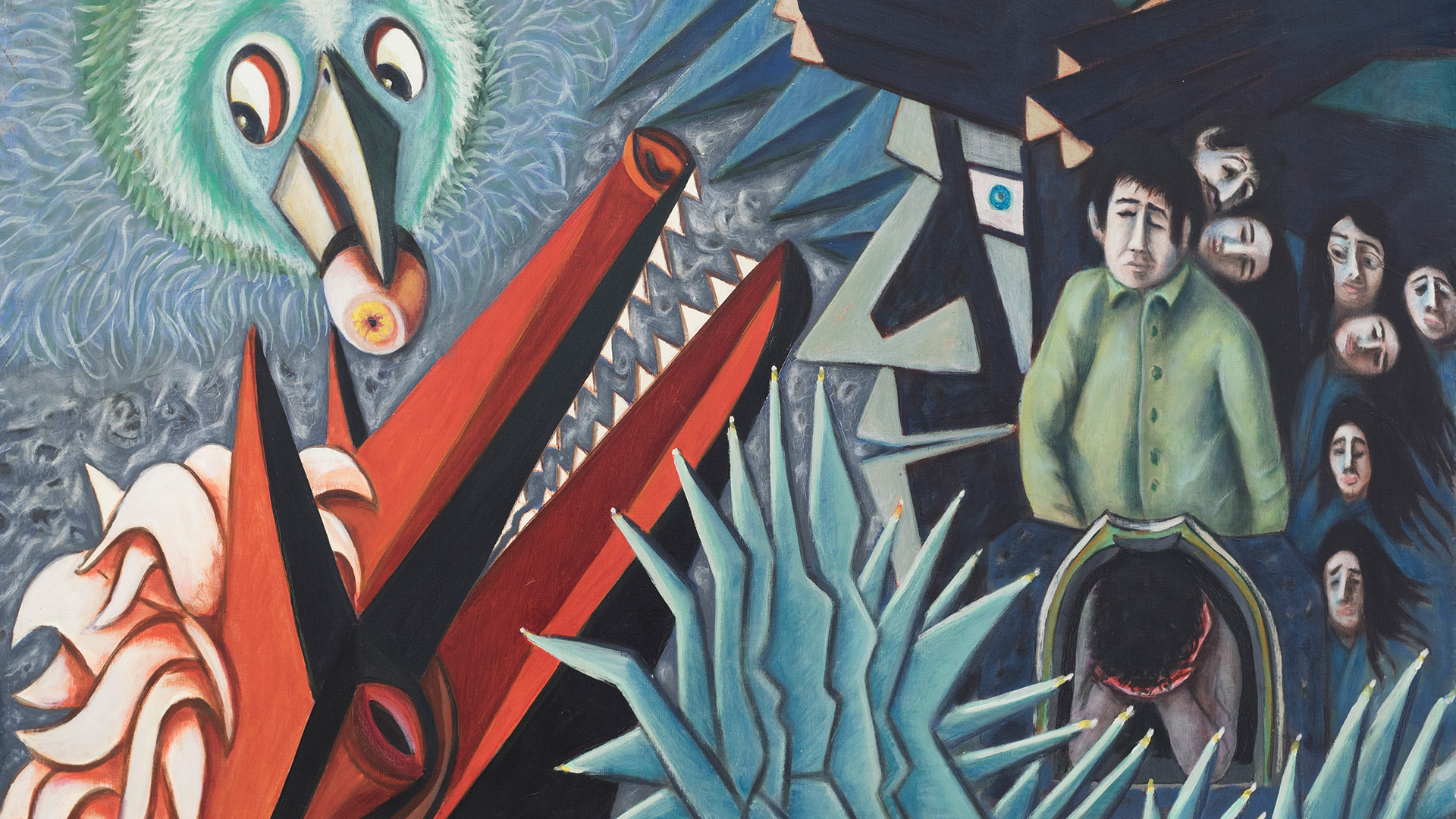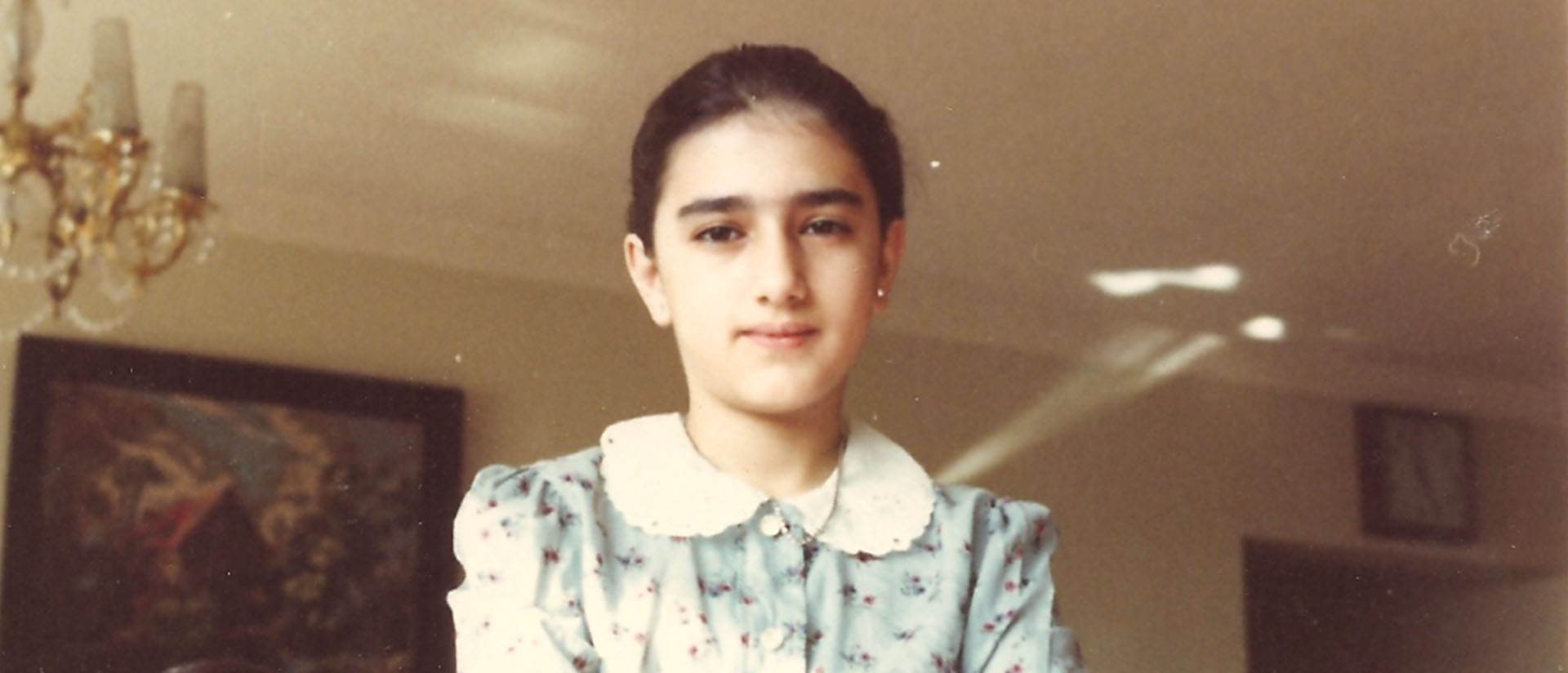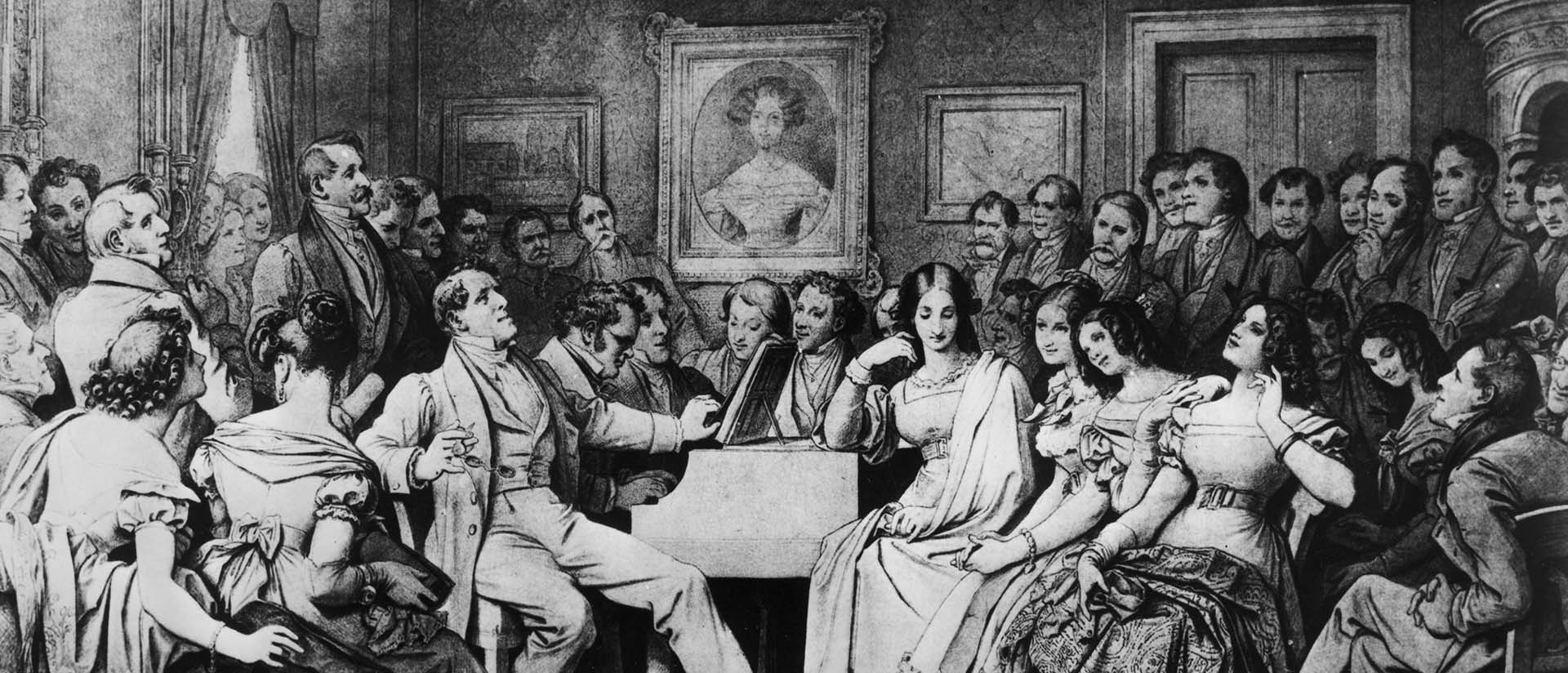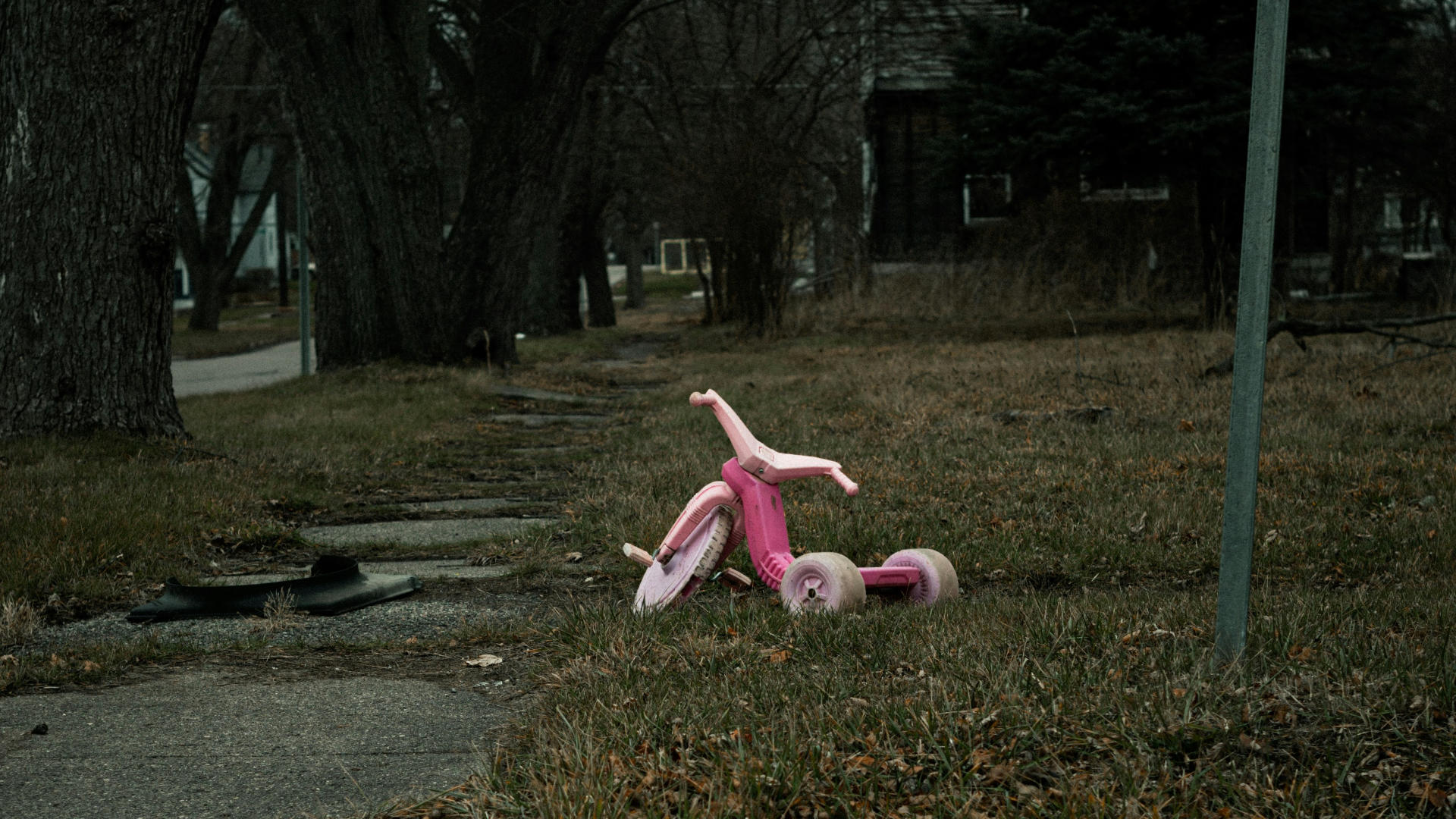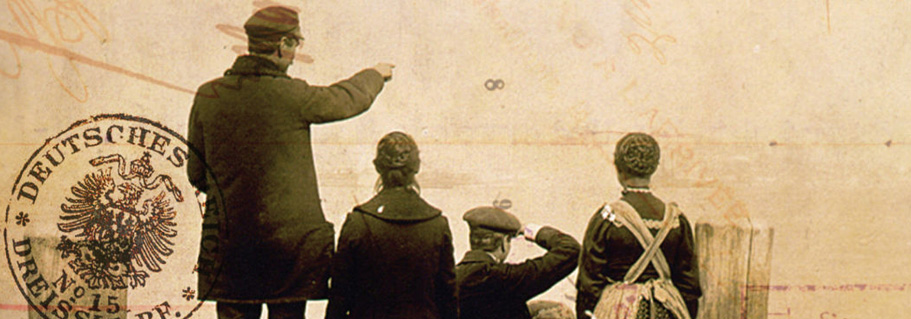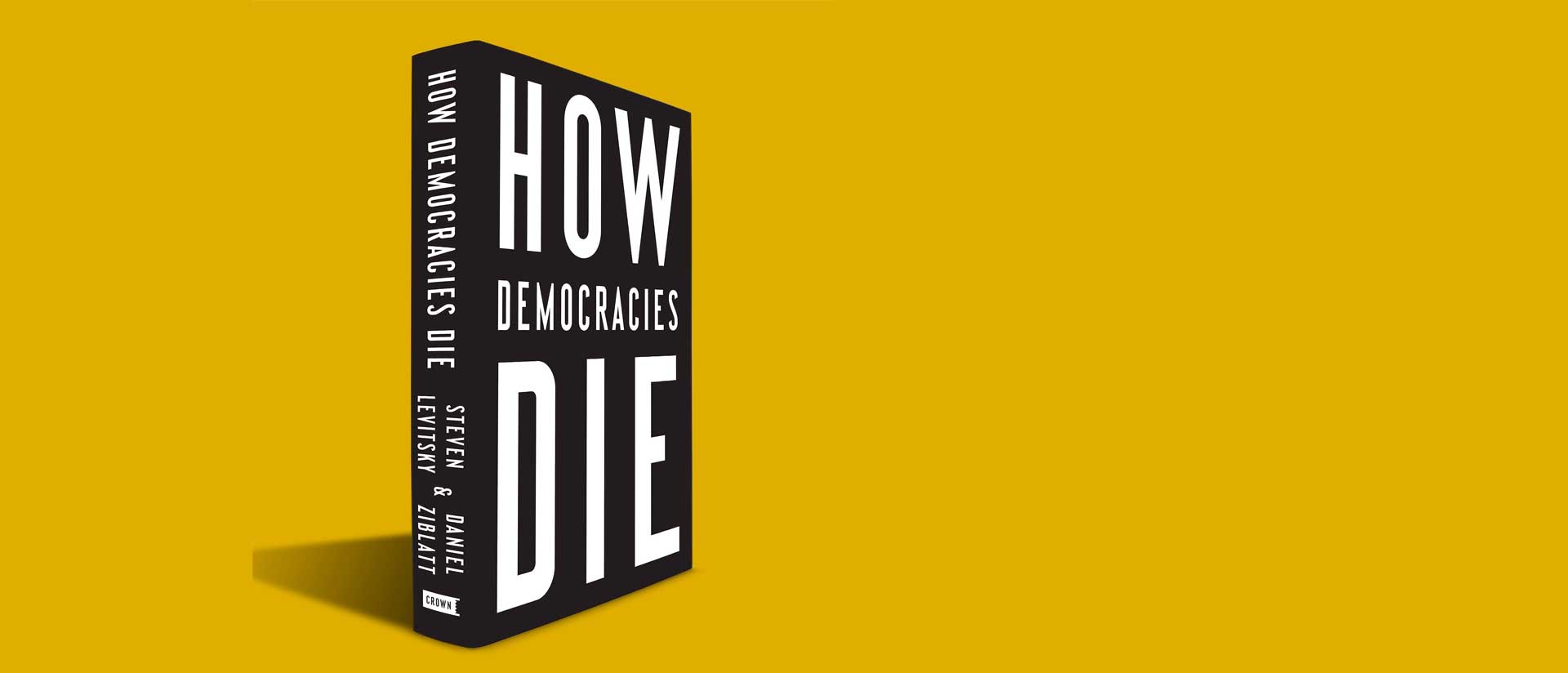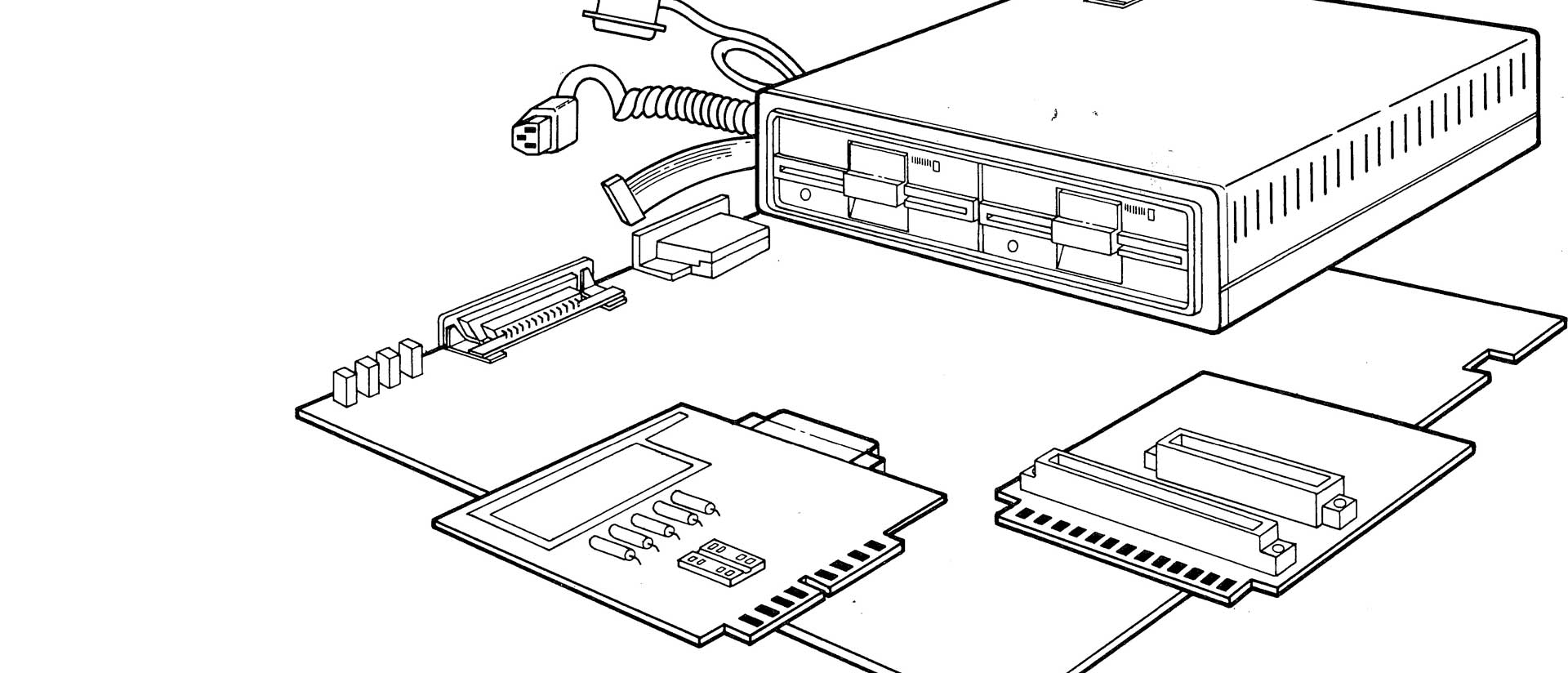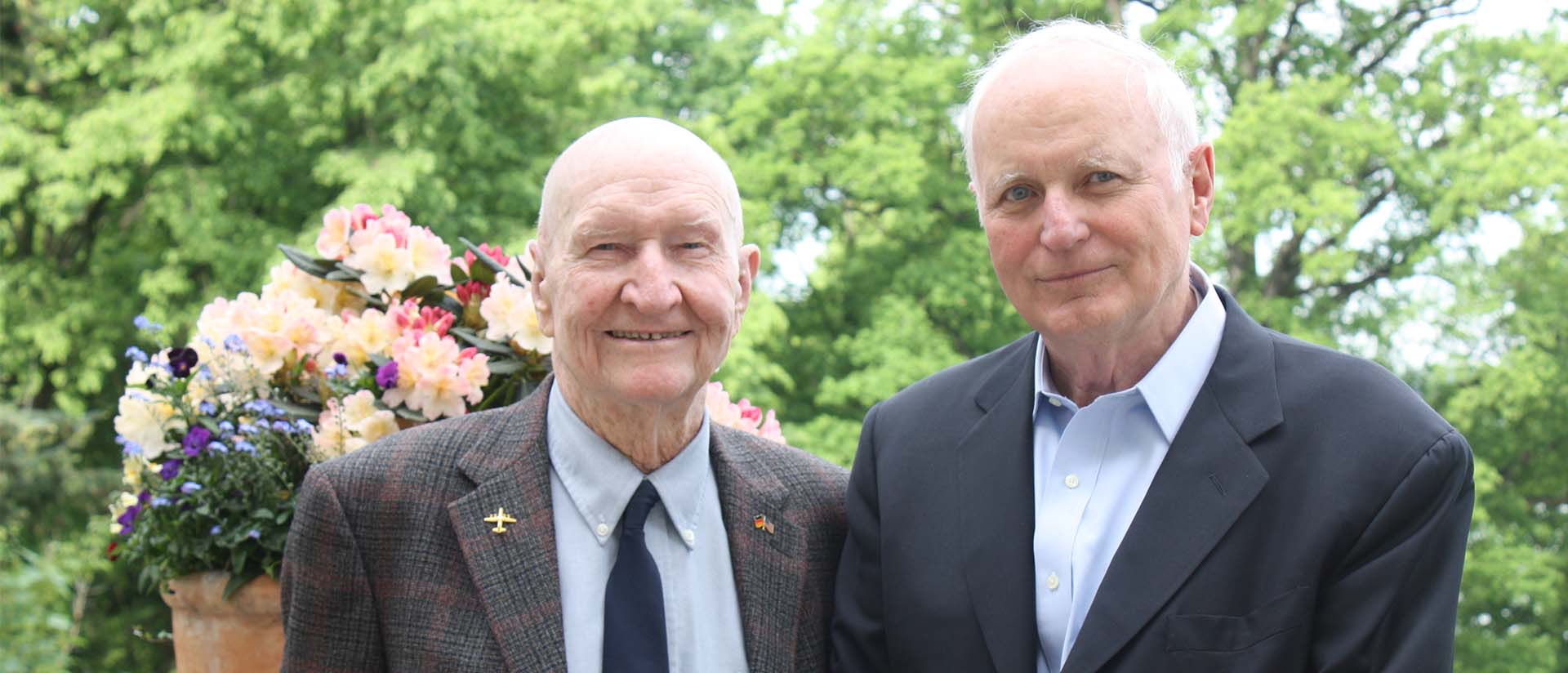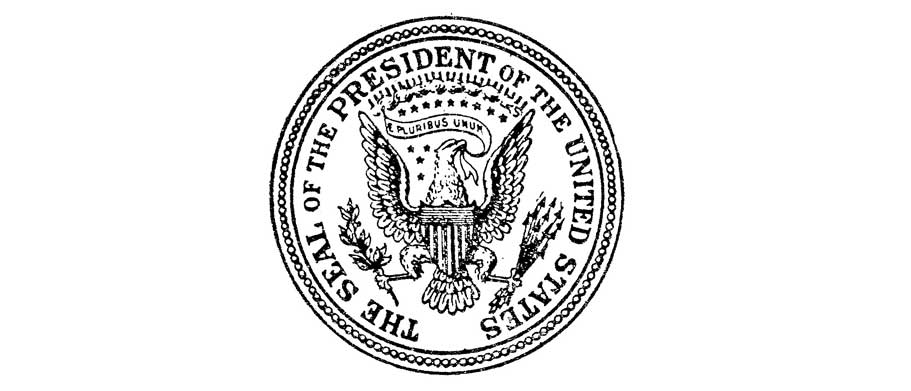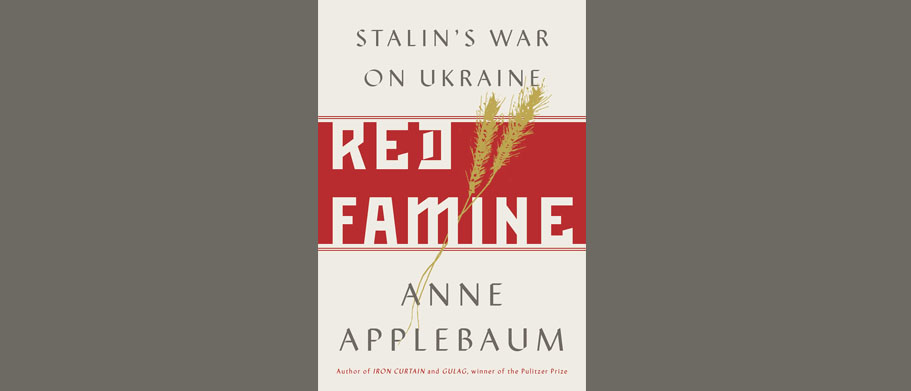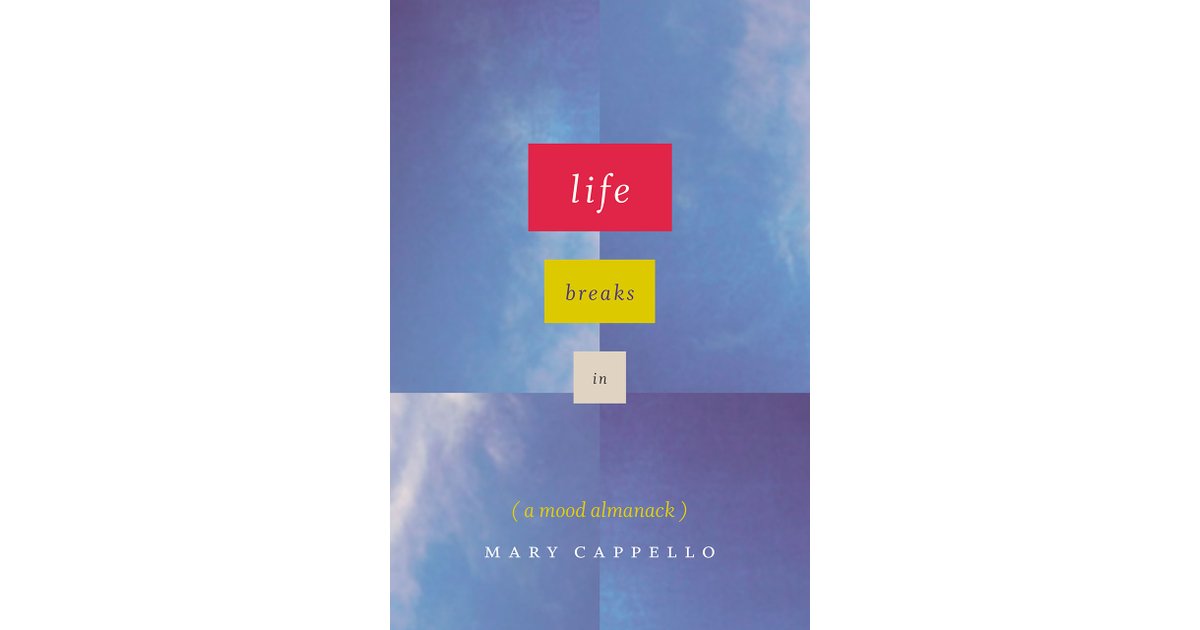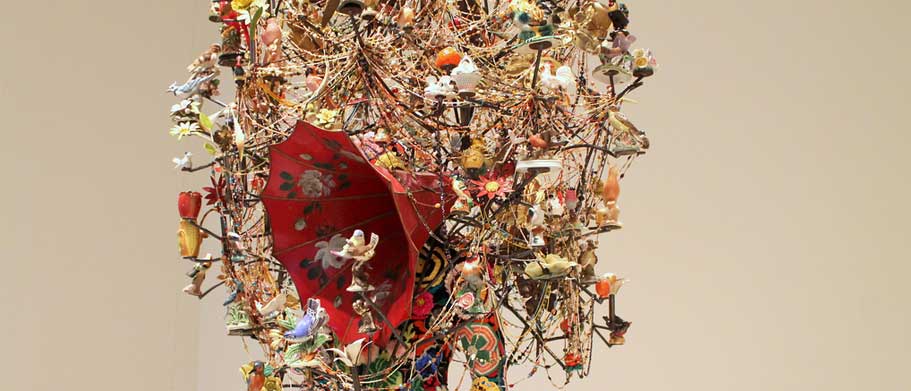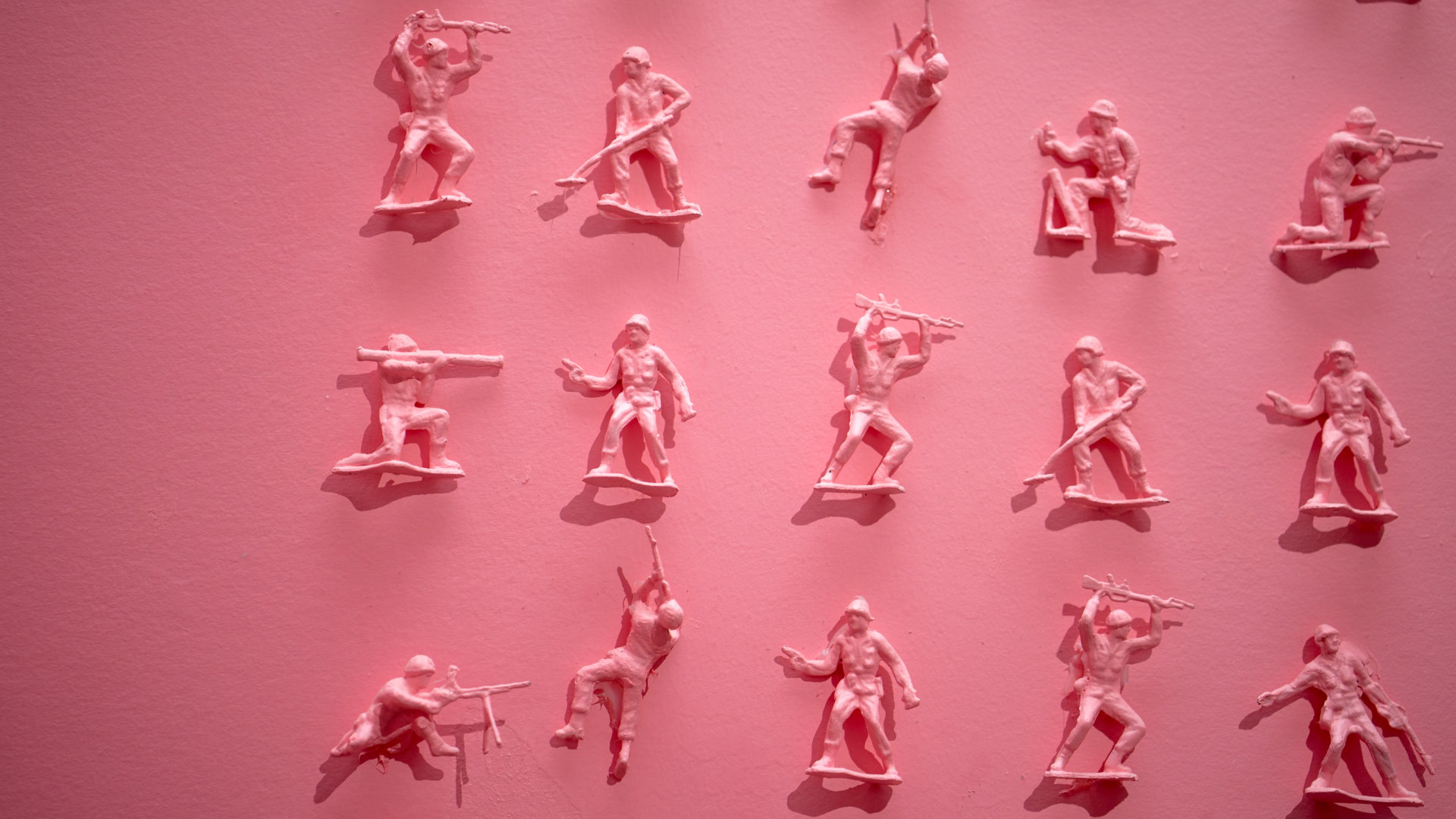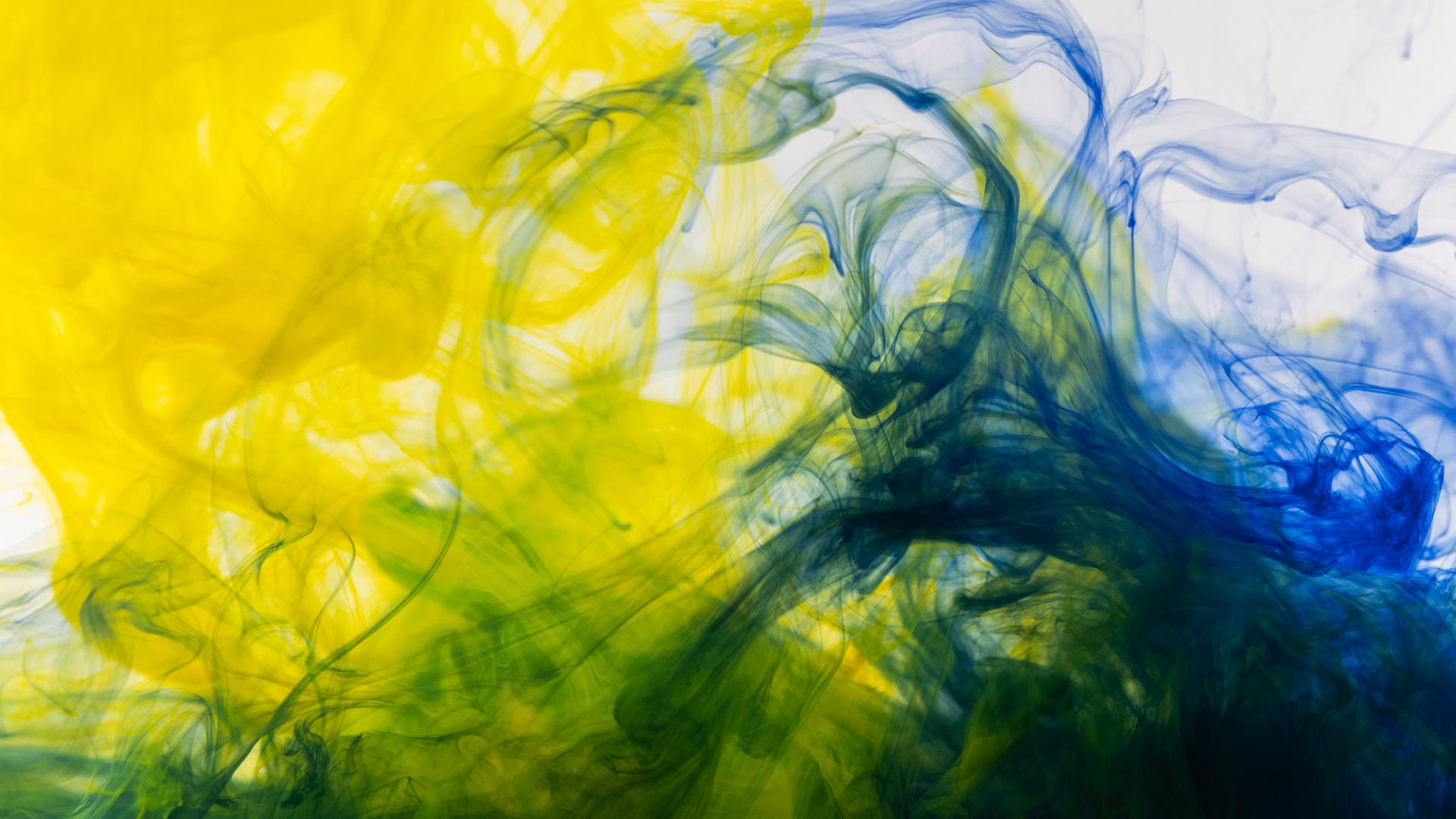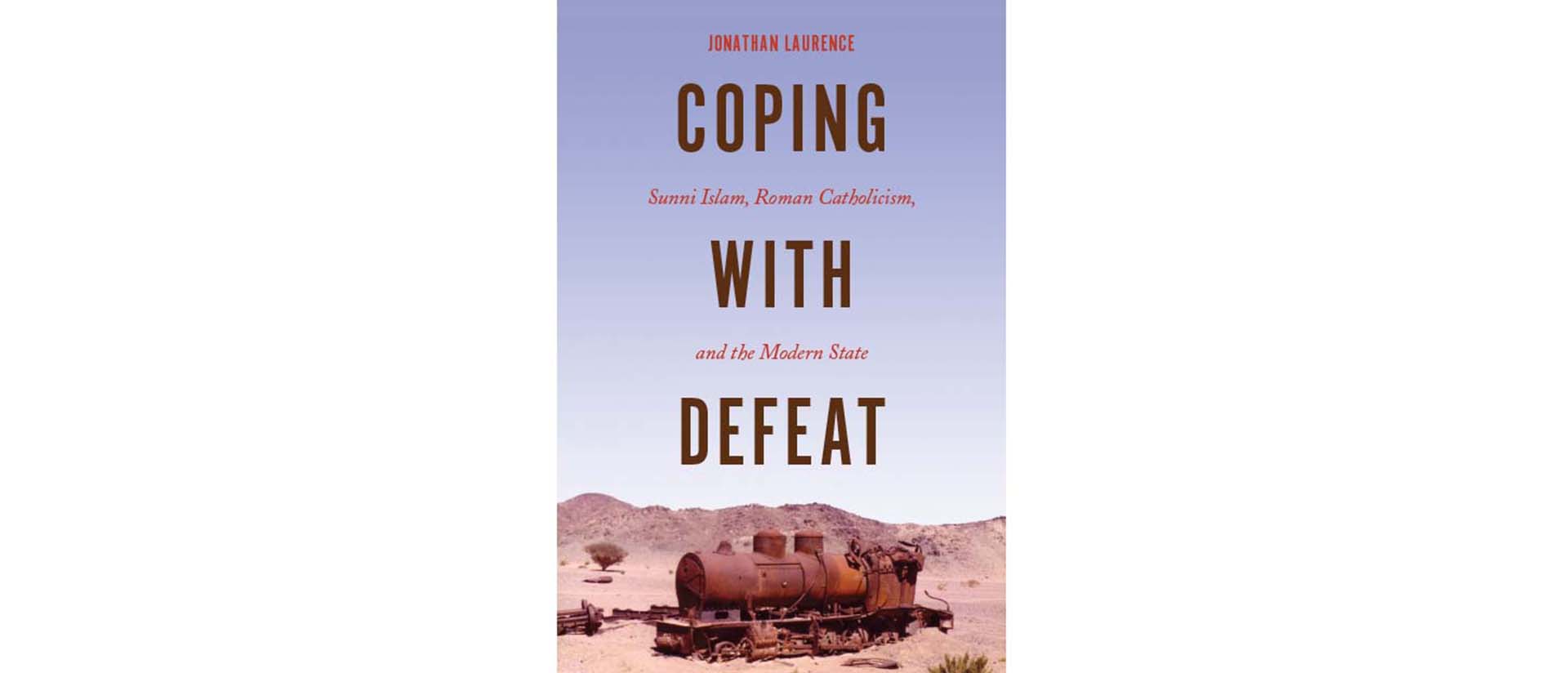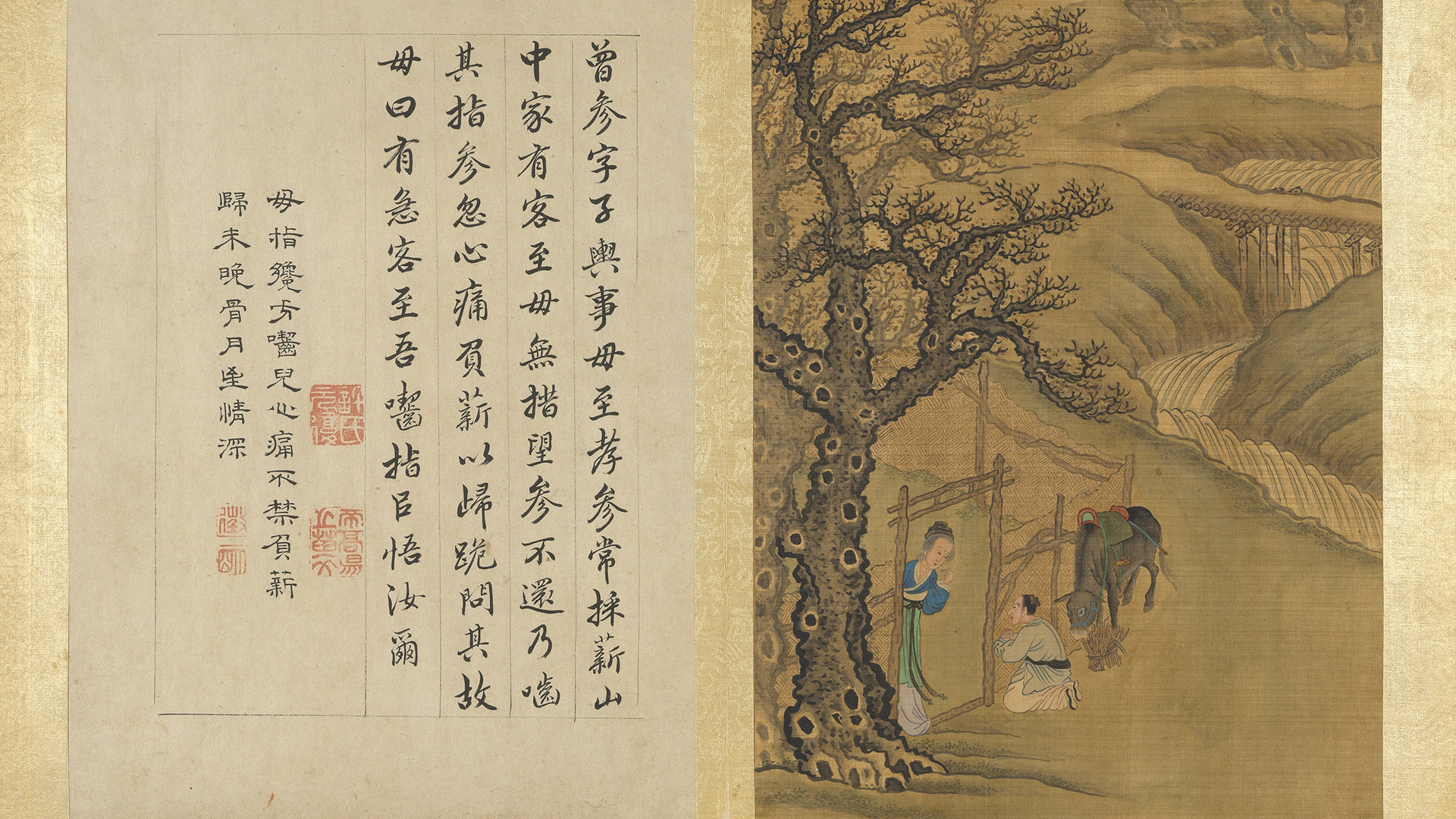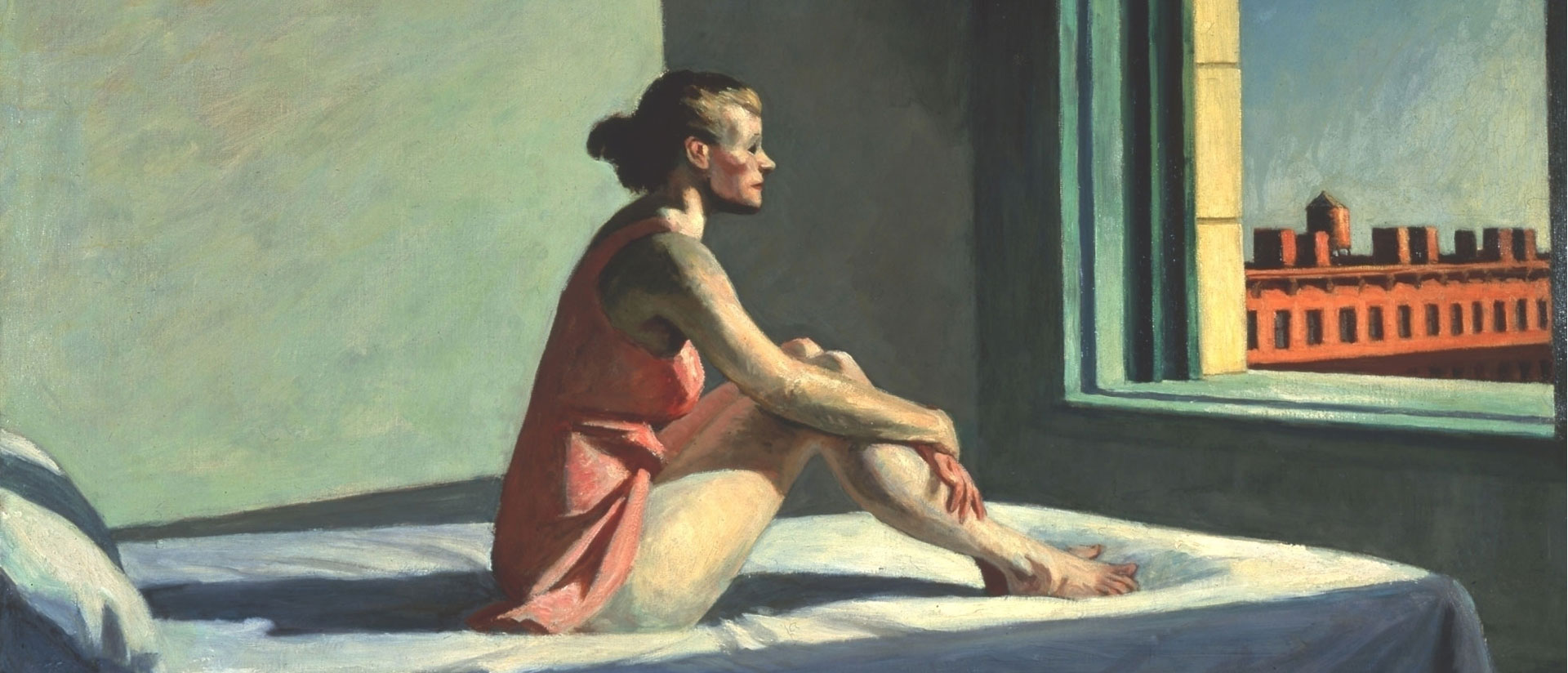
Stuck Inside
Rumination in the time of coronavirus
By Amanda Anderson
The project that brought me to the American Academy in Berlin for the spring 2020 semester centers on rumination, a form of thinking that operates in slow time, out of sync with the accelerated dimensions of contemporary life. Rumination operates outside of societal expectations of moral and psychological progression to get “back to normal” in the face of life-altering events. Insufficiently acknowledged as a habit of thinking oriented toward some of the most profoundly unsettling and injurious forms of human experience, rumination is often viewed as unproductive and circular, or pathologized as a symptomatic behavior that falls below the level of more dignified forms of moral deliberation, judgment, or decision.
Rumination typically follows in the wake of shocking or traumatic events – it is an attempt to process them, to come to terms with them. Reiterative and persistent, distracted and dilatory, ruminations indirectly work to reconcile one’s response to troubling experiences with one’s orienting value commitments. Rumination is also a habit of mind that can emerge out of an ongoing situation in which one experiences an assault on one’s dignity—as, for example, in the case of structural inequities keyed to race, class, gender, sexuality, or disability. Part of the power of Claudia Rankine’s Citizen: An American Lyric (2014) derives from the way it captures a recursive form of thinking linked to everyday experiences of moral shock under conditions of pervasive racism. A series of vignettes capture such moments—for example, when a colleague complains about being forced by the dean to hire a person of color “when there are so many great writers out there,” or when a fellow passenger betrays surprise at seeing someone like the speaker during elite status plane boarding. Some of these vignettes are left to stand alone but others morph into rumination, and indeed a ruminative refrain recurs throughout the lyric: “What did he just say? Did she really just say that? Did I hear what I think I heard? Did that just come out of my mouth, his mouth, your mouth?”
The complexity and significance of rumination as a moral habit has been seriously under-recognized. In psychology and psychiatry, rumination operates as a diagnostic descriptor that is predominantly negative, symptomatic of unhealthy thought patterns linked to low self-esteem and a range of conditions, including post-traumatic stress, eating disorders, depression, and anxiety. One key feature identified within ruminative thought patterns is the tendency to denigrate oneself relative to an imagined, and unachievable, standard. It is quite possible to have so internalized power-laden societal norms that one simply and repeatedly denigrates oneself. However, as the Rankine example shows, being “stuck” in a thought pattern that challenges an unacceptable status quo in which one experiences ongoing denigration can bespeak a dedication to one’s own dignity and to moral and political ideals of equality and recognition. Brooding on unacceptable conditions is itself the expression of a value commitment: it is an act of citizenship.
Being “stuck” in a thought pattern that challenges an unacceptable status quo in which one experiences ongoing denigration can bespeak a dedication to one’s own dignity and to moral and political ideals of equality and recognition.
Yes, such situations can be wearing and injurious, and cause significant psychological and emotional distress, but to treat such conditions as forms of psychological imbalance that require medication or treatment through cognitive behavioral approaches (in which one redirects one’s thoughts) fails to grasp the productively critical element in such thinking. There is significance, and dynamic movement, in reminding oneself over and over again, even if by means of “negative” or “critical” modes, of what is unacceptable or injurious, and of why one’s values matter. A partial acknowledgment of the productive potentiality of rumination has taken place in more recent psychological literature, specifically in relation to the relatively new concept of post-traumatic growth. But there is still a tendency in this new literature too bluntly to divide positive and negative thought patterns.
It is tempting to imagine that life under the conditions of quarantine promotes productive forms of rumination, but the fact of the matter is that in some sense we remain in a form of shock that is at once strangely dilatory and altogether new – unprecedented, as we so often hear. Rumination occurs in the wake of trauma; it is a post-traumatic habit of mind. Or, as in the case of Rankine, it occurs in the context of ongoing complex trauma that trails a long history and is at the same time always newly assaultive. But for those whose primary experience at present is one of quarantine and self-isolation, the situation is at once too novel and too unassimilable to allow for a ruminative response. It is too immediate an experience, one in which thinking is repeatedly eclipsed by a pervasive variable anxiety that interrupts the reflective extension required by ruminations, even those forms of rumination which seem unwilled or “intrusive,” as the psychological literature says. Rumination is a kind of luxury, as odd as that may seem given its close connection to injury.
The situation is even more pronounced for those who don’t have the good fortune to quarantine in conditions of relative peace and comfort. Those who have limited space or resources, or ongoing exposure as an essential or frontline worker, or serious illness from the virus itself, are in the midst of an emergency situation that in the best case scenario will improve and allow for a ruminative aftermath oriented toward processing various levels of moral shock or disturbance. The coronavirus is not unique in its ability to foreclose processing as it happens—this is true for crises in general, and also true for situations in which an ongoing need for sheer survival precludes significant spaces of reflection. The fact that rumination is fundamentally linked to post-traumatic conditions (and not to the time of the actual trauma) reveals the afterness in which it takes place, a crucial temporal element that also inheres in the literal concept of rumination, where food is regurgitated and re-chewed.
The coronavirus is not unique in its ability to foreclose processing as it happens—this is true for crises in general, and also true for situations in which an ongoing need for sheer survival precludes significant spaces of reflection.
There are more reflective forms of rumination in works of philosophy and literature, ones which draw out larger theoretical or generalized elements of the moral and political life. In the preface to The Genealogy of Morals, Nietzsche claims that “you need one thing above all to practice the requisite art of reading”—and to understand his own writings: “rumination.” Interestingly, what we are invited to ruminate on in his text is the possibility that conventional moral values are the result of ignoble psychological tendencies. The shock here is philosophical and moral: the imagined ruminative exercise involves radically rethinking ethical frameworks. In other instances, literary writers circle back repeatedly to morally disturbing thoughts or conditions and punctuate their writings with summary remarks meant to somehow capture the import of the recursive thought processes. In George Eliot, these take the form of maxims about the recalcitrance of human egotism or the transformative power of luminous ethical personality and its powers of sympathy and fellowship. In Anna Burns’s 2018 novel, Milkman, which is set during the time of the Troubles in Ireland, such ruminations involve pondering a pervasive drive toward normalization, one which thwarts nonconformity in general but also suppresses any open and considered response to the complex trauma of ongoing political terror and violence.
If rumination tends to take place after the fact, however, it is my surmise that habits of rumination, and in particular habits of reflective rumination, can prime one for moments such as we inhabit right now. While we are in the midst of a world-altering event whose outcomes we cannot yet know, reported responses to it, which many of us remain riveted to during our anxious days of quarantine, can shock us or disturb us in ways that prompt ruminative patterns. The drive to normalization—whether in the form of attempting to render the virus familiar and unthreatening, or as a push toward returning to normal—is precisely the kind of moral affront that the ruminator habitually resists and doesn’t “let go.” Similarly, precipitous attempts to promote opportunities for deriving meaningfulness from what is thus far a very new and relatively short alteration of our lives, remind the habitual ruminator that it is very early days and we are in no position to know what this will have meant. Time may have slowed (for those in quarantine) and yet very little time has passed relative to the slow time of rumination.
The drive to normalization—whether in the form of attempting to render the virus familiar and unthreatening, or as a push toward returning to normal—is precisely the kind of moral affront that the ruminator habitually resists and doesn’t “let go.”
Not everything that is happening, it must be added, is shock and disturbance. There are forms of solidarity and heroism and exemplary governance significantly present. One can hope that they presage a post-viral boom of democratic participation and political growth, including renewal of the strength of governmental institutions, public-health systems, and possibly even policies on climate change. Some of the most disturbing elements of the current pandemic, especially in the US, have to do with political and economic trends that have been developing and intensifying for some time; the crisis has sharply exposed seriously eroded and underfunded public governance and health systems. Those who believe in the importance of healthy governance structures are in the midst of a collective trauma that has been years in the making and has been exacerbated mightily since 2016. The time of making sense of how all this happened and what its long-term effects are is slow, but the value commitments that underlie our shock and prompt our reflective ruminations can become a resource for renewed actions in the near term. This mode of response is precisely not normalization but rather aspiration, a close cousin to productive rumination.
Image: Edward Hopper, Morning Sun, 1952 (detail). Oil on canvas, 101.98 x 71.5 cm. Courtesy Columbus Museum of Art.

